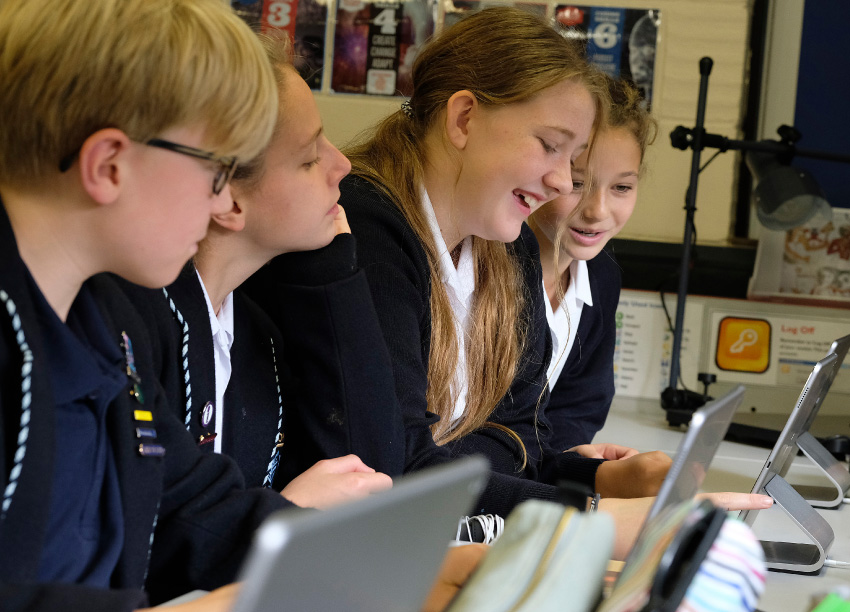The role of technology in education
Posted on 21st Dec 2018 in School News, Technology, Which School?
Graham Starkey, Assistant Head (Digital Learning) at Feltonfleet Preparatory School in Surrey, on finding the balance with ‘traditional’ teaching.
In recent years, Feltonfleet has invested heavily in an IT infrastructure that enables fast, secure internet access through an enviable number and range of tablet and laptop computers, offering access to a strategically placed set of online tools geared to educational use. At the entrance to our Digital Learning suite, a “WHY?” poster clarifies our rationale, “We are passionate about teaching pupils to become confident authors and creators of digital content”, mirroring our vision to ‘digitally empower’ all our pupils to ensure that they are equipped with the skills and abilities required in the workplace of the future.
Technology in education is moving swiftly, with the latest offerings at this year’s BETT (formerly British Educational Training and Technology show) including drones, artificial intelligence, robotics and augmented reality headsets. So, will your child be strapping on their augmented reality headset anytime soon, perhaps abandoning their trusty textbooks? With this in mind the central question for all schools is: ‘What is the role of technology in education?’
As a Prep School we believe in blending the very best of traditional education with innovative new technologies. ‘Digitally empowering’ our pupils is about two very clear goals:
GOAL 1
Helping them to become discerning users of technology, confident in their ability to independently choose technologies to enhance and extend their learning outcomes where appropriate. As such, we strongly encourage critical thinking skills in order to question the role of technology by asking ‘Will technology add any value to my learning process?’
GOAL 2
Developing their knowledge and skills as authors and creators of their own digital content, as designers and computer programmers with knowledge of core computing concepts and acquisition of key skills to ready their access to developing technologies and future jobs.
With our ‘Why?’ already clear, our ‘How?’ is all about the process: nurturing confidence, building fluency, questioning, investigating and discovering creative workflows and outcomes, with assessment focusing on these qualities. With a pupil’s ability to think and innovate often touted as the ideal outcome of education, the ingredients of ‘coding’, namely logical reasoning, the ability to structure an argument, problem solving, mathematical application, and buckets of creativity, make for a solid foundation in this regard.
Pupils at Feltonfleet confidently collaborate on shared documents online, compile multimedia digital portfolios to collate their learning processes in Art and Modern Foreign Languages, use video to analyse their performance in PE and program robots in Digital Learning using Swift, a new programing language designed by Apple quickly gaining prominence in the computing field.
Whilst these ‘What?’ elements will surely change over time the priority should surely always remain to question the added value of technology first, prior to its use for the sake of it. By doing so, the natural balance of when to use, and when to leave devices to one side, will surely prevail.